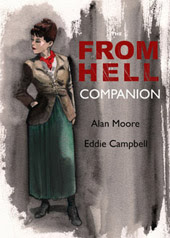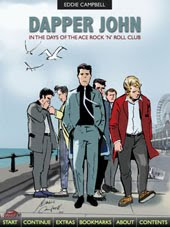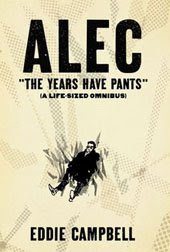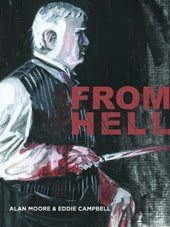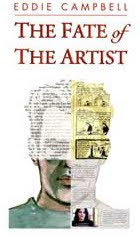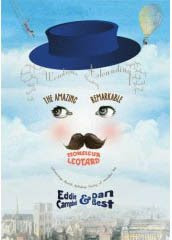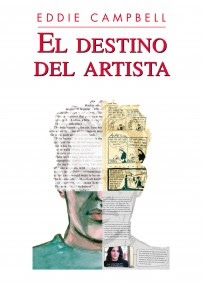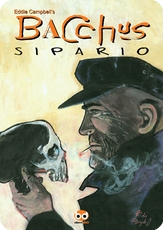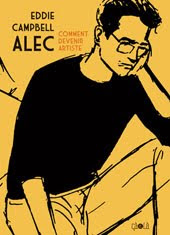
Like the character in a strip described on page 818 of this biography, I have just realised that the title Of Margaret Mitchell's (my mother's names both, coincidentally) famous book, 'Gone with the Wind' is a derived from no. 103 of the Psalms. The line stuck in my head after I finished reading the tome. It's one of those classic, grand biographies that give us the subject from cradle to grave, complete. I have vicariously lived Caniff's 81 years condensed into a short span of time, in this case a couple of weeks, starting on my flight back from San Diego where I picked it up. I had waited too long for this book to not start it right away. Shel Dorf mentions it here, way back in 1998: "I tape recorded many of those conversations with his knowledge and loaned the tapes to R. C. Harvey when he was writing Milt's biography; he's still looking for a publisher." Nine years later we have Bob's book in our mitts. Given that the publisher is Fantagraphics, I presume he got tired of sending it around to all the big houses and gave up hope of a monetary advance commensurate with both the labour and the cultural-historical value of the project. And finishing it yesterday morning, in tears inevitably, I had to write off the rest of the day and go and have lunchtime beers with those pals of mine, none of whom have read a single page of the cartoonist I often cite as the single most important influence on my career.
You may say, 'all right, but we can't see any of that in your work, Campbell.' Fair observation.
I first discovered Caniff in the early 1970s, one of that generation who had taken Marvel comic books very seriously and were then looking for something meatier to sink our teeth into. As Harvey shows in his book, this particular cosmic balance came into effect as Caniff's then current Steve Canyon (1947-1988) daily strip was seriously losing circulation. Compilations of his earlier Terry and the Pirates (1934-1946) were starting to appear in collector's editions, first from Nostalgia Press and then in a long serialisation in ... uh... was it the Menomenee falls Gazette (or one of the other imitations, 'Favourite Funnies' etc?... I confess i chopped them all up into loose sheets the better to transport the distilled essence in my travels, and even at that I no longer have them nearby). The late '80s and early '90s had the Flying Buttress reprints and now we are about to receive the IDW complete edition. I hope it does well and sees completion.
What appealed to me in Caniff was the humanity. take this sample which I found at Duckburg, two people talking about human stuff:
 Caniff could have conversations go on for days, sparkling with lively patter. At other times, silent pictures speak eloquently, as in the oft reprinted final page of Terry, a variant of the romantic Bogart-Bergman parting at the end of Casablanca*. Caniff's page will always be a favourite of the comic strip aficionado for all that it evokes without the gloss of verbal description. It is the essence of all that we ever hoped to achieve with the form, when we started thinking of it as a 'form': a pictorial narrative language that is beyond cold theory, demonstrated long before we started looking for it.
Caniff could have conversations go on for days, sparkling with lively patter. At other times, silent pictures speak eloquently, as in the oft reprinted final page of Terry, a variant of the romantic Bogart-Bergman parting at the end of Casablanca*. Caniff's page will always be a favourite of the comic strip aficionado for all that it evokes without the gloss of verbal description. It is the essence of all that we ever hoped to achieve with the form, when we started thinking of it as a 'form': a pictorial narrative language that is beyond cold theory, demonstrated long before we started looking for it.

It goes without saying of course that a biography of a guy who spent his entire life at his drawing board making some of the greatest comic strips ever including a series that lasted 41 years, written by a fellow enthusiast and obsessive compulsive like myself, would be intrinsically compelling to me. Harvey is good at pinning down once and for all the passage of assorted 'ghosts,' and art assistants through the life of the subject and his work (not as many as one would think in such a long span of time). For instance, one sequence reprinted in the old Steve Canyon mag from Kitchen Sink press, (edited by Dorf, mentioned above) that Caniff thought might have been ghosted by Fred Kida or Alex Kotsky is here given finally to William Overgard (of Mike Nomad fame). Such things are endlessly fascinating to me, but for those not of the same bent, the real interest is in the people of celebrity he knew and who knew him. A line from quite late in the book: Incongruously, one room of the jammed duplex became the resting place for the piano given to the Caniffs by Kurt Weill ; Bunny didn't want it at Vista Chino.
I thought of making a very short but comprehensive list of the serious biographies that we have of the great practitioners of our art, but this one stands on its own and I want to leave it standing like that for now. I'd like to say may Bob Harvey do more like this one, but the moment is too short. We're are lucky to have it at all.
(Update 4.04 pm. to add footnote.) * Not that they are so alike as they are going around in my head in a romantic swirl, much as they did twenty four years ago in the humid evening on the tarmac at Darwin airport (where Jane is headed, above) when I took the notion to propose to Anne, though we were in the terminal by the time I got the words out.
Labels: classic strips(1)

 The designer on this was Adam Grano, no relation to cum grano salis (as far as I know). I made the letters in the balloon out of wet watercolor so that the density of saturation varied with the unloading of the brush. He decided to replace the magazine's illustrious logo for this issue with these campbellian fumbles. He took my letters from inside the balloon, blew them up and constructed the logo from them. There was an earlier change that I sent in which meant he had all the letters except the 'j' which he made by lenghtening an 'i'. Now I personally would never have had the arrogance to send that in for a logo. I would have been sweating and weeping all night with a ruler and a t-square only to see my effort summarily rejected. These design guys, eh? What makes them think they can get away with it, that's what I want to know :)
The designer on this was Adam Grano, no relation to cum grano salis (as far as I know). I made the letters in the balloon out of wet watercolor so that the density of saturation varied with the unloading of the brush. He decided to replace the magazine's illustrious logo for this issue with these campbellian fumbles. He took my letters from inside the balloon, blew them up and constructed the logo from them. There was an earlier change that I sent in which meant he had all the letters except the 'j' which he made by lenghtening an 'i'. Now I personally would never have had the arrogance to send that in for a logo. I would have been sweating and weeping all night with a ruler and a t-square only to see my effort summarily rejected. These design guys, eh? What makes them think they can get away with it, that's what I want to know :)












